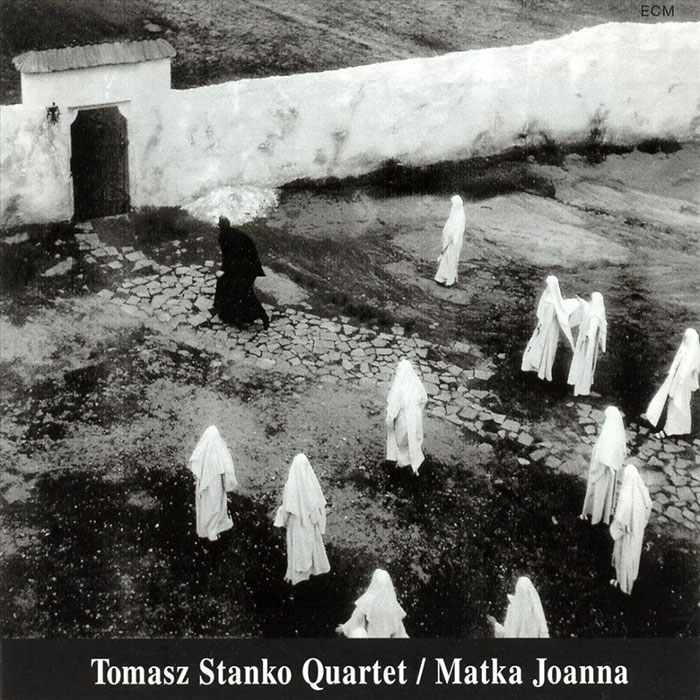Logowanie
Dziś nikt już tak genialnie nie jazzuje!
Bobby Hutcherson, Joe Sample
San Francisco
SHM-CD/SACD - NOWY FORMAT - DŻWIĘK TAK CZYSTY, JAK Z CZASU WIELKIEGO WYBUCHU!
Wayne Shorter, Freddie Hubbard, Herbie Hancock, Ron Carter, Elvin Jones
Speak no evil
UHQCD - dotknij Oryginału - MQA (Master Quality Authenticated)
Chesky! Niezmiennie perfekcyjny
Winylowy niezbędnik
ClearAudio
Double Matrix Professional - Sonic
najbardziej inteligentna i skuteczna pralka do płyt winylowych wszelkiego typu - całkowicie automatyczna
Tomasz Stanko Quartet
Matka Joanna
- Tomasz Stanko Quartet - quartet
With a nearly two decades separating Polish trumpeter Tomasz Stanko’s ECM debut, Balladyna, and Matka Joanna, his label follow-up as leader, it’s no wonder the two are so different. Taking Jerzy Kawalerowicz’s 1961 film Matka Joanna od Aniołów as its inspiration, the second draws from a palette of possession and temptation as grittily as its namesake’s B&W canvas. Backed by pianist Bobo Stenson, bassist Anders Jormin, and drummer Tony Oxley (in a decidedly Christensenian mode), Stanko brings his pungent lyricism to bear across a swath of mountains and shadows that inhales cobwebs from a “Monastery In The Dark” and exhales the mummified sermons of its “Klostergeist.” Within those lungs mingle forgotten bells, vibrating between prayer and dreams, and chains of latent virtues. Jormin’s bass squeaks like a family of mice in the walls, Stenson the cat stalking them from every alcove. Stanko, meanwhile, lights votive candles with the tip of his every winded tongue, trailing mystery into the drowsy flower of a “Green Sky.” A complex track in spite of its recessive nature (the pianism alone is a maze of nuance), it sets bass adrift on a current of icy cymbals until the swinging “Maldoror’s War Song” sticks some feathers to Stanko’s skeletal wings. Amid this rosette of fire, Stenson connects the constellatory dots and hugs Jormin’s nebular blurs. Further highlights include the continuity of heaven and earth as heard through Stanko and Jormin’s relay in “Matka Joanna From The Angels” and the likeminded meditations of the superbly punned “Nun’s Mood.” Though but a brief excursion for trumpet and drums, the latter leaves us open to the cerebral fog of “Celina,” a sleeping face in sound whose eyes enchant before they ever open. While Stanko’s economy of abandon (listen especially to “Cain’s Brand” in this regard) is something to marvel at, to these ears Jormin stands out from the rest in this soundtrack within a soundtrack. The depth of his grain holds the knots together, even as it dissolves that glue that keeps them from falling out. The result is a balance of style and effect that never wanes. Ironically enough, this album seems to recall another stark narrative of spiritual challenges: namely, Anchoress (1993, dir. Chris Newby). Ironic, because said film is utterly devoid of music, save for a passage of retribution at the end. So, too, with Stanko’s paean to an underrated picture, staring at us from beyond the celluloid in a straight line to our souls.































